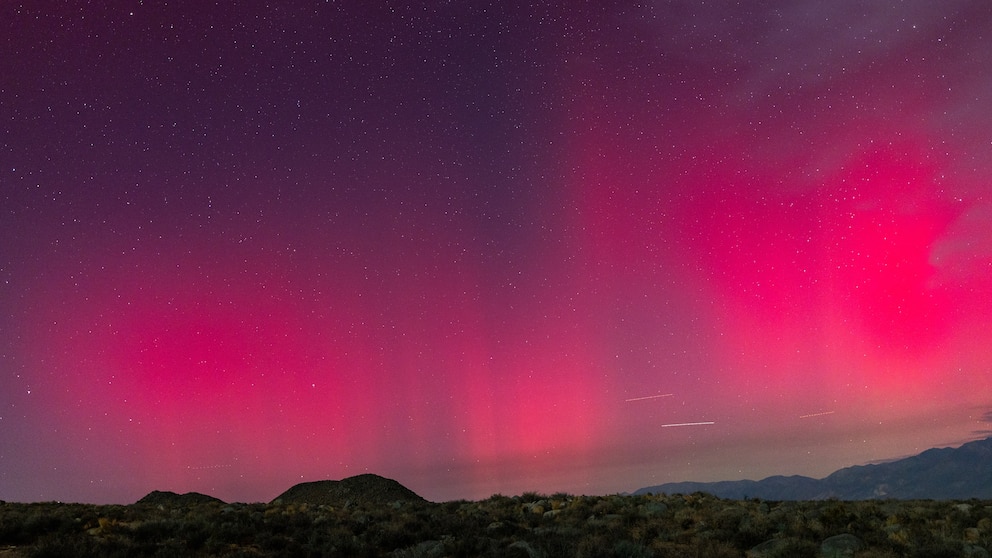Experience the Northern Lights Tonight: A Guide for Adventurers and Stargazers
The northern lights, a breathtaking celestial phenomenon, are a spectacle that attracts countless visitors each year. Tonight, many will have the chance to witness this natural display of color and light, which paints the night sky in varying shades of green, purple, and red. If you’re wondering about viewing the northern lights tonight, you’ll want to keep reading!
What Are the Northern Lights?
The northern lights, scientifically known as the aurora borealis, occur when charged particles from the sun collide with atoms in the earth’s atmosphere. This interaction creates stunning visual displays in the sky, typically around the polar regions. The energy released during these collisions is what we see as different colors lighting up the night.
Why Are the Northern Lights More Visible Tonight?
According to a recent report from ABC News, conditions tonight are particularly favorable for viewing the northern lights. A combination of high solar activity and clear skies in many regions across the United States will allow enthusiasts and curious stargazers alike to catch a glimpse of this awe-inspiring natural phenomenon.
Where to See the Northern Lights Tonight?
As per the latest updates, the northern lights will be visible across 18 states in the U.S. From the Midwest to the Northeast, here are some recommended spots:
- Minneapolis, Minnesota: The optimal time for viewing starts after sunset. Head to areas away from city lights for the best experience.
- Wisconsin: Locations near Lake Superior are particularly promising tonight, offering a clearer view unobstructed by urban light pollution.
- Upstate New York: The Adirondack Mountains provide excellent dark skies ideal for aurora viewing.
- Michigan: The northern parts of the state, particularly near the tip of the Upper Peninsula, are historically popular locations for seeing the aurora.
- Maine: Coastal areas, including Acadia National Park, offer both scenic views and potential auroras, weather permitting.
How to Prepare for Your Aurora Adventure
Planning to head out tonight to see the northern lights? Here are a few tips to ensure a successful viewing experience:
- Check the Forecast: Weather conditions greatly influence visibility. Use weather apps to check for clear skies and minimal cloud cover.
- Find Dark Areas: Escape the city lights! Locations away from urban areas increase your chances of seeing the aurora clearly.
- Dress Warmly: Depending on your location, the temperatures could drop significantly. Wear layered clothing to stay comfortable while you wait for the lights to appear.
- Bring Proper Gear: A good camera with a tripod is essential if you want to capture the moment. Additionally, binoculars can enhance your viewing experience.
The Science Behind the Spectrum of Colors
The vibrant colors of the northern lights are a direct result of the type of gas particles involved in the collisions. The most prominent green hue is caused by oxygen molecules at low altitudes, while reds and purples emerge from higher altitudes where different gas particles interact with the sun’s energy. Understanding this science enhances the appreciation of the auroras as not just a visual spectacle but a true natural phenomenon.
History and Myths of the Northern Lights
For centuries, the northern lights have inspired folklore and mythology around the world. Indigenous tribes in North America, for instance, believed that the auroras were spirits dancing in the sky. Various stories across cultures convey the beauty and mystery of these lights, emphasizing their impact on human imagination and exploration.
Conclusion
Tonight presents a thrilling opportunity to witness one of nature’s most astonishing wonders—the northern lights. With the right preparation and by heading to the right locations, you can experience firsthand the magic of the auroras. Whether you’re a seasoned stargazer or simply looking for an unforgettable experience, don’t miss this rare event!
For ongoing updates and specific timing, make sure to refer to reliable sources like ABC News. Happy stargazing!








